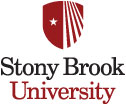Newswise — STONY BROOK, N.Y., January 25, 2018 -- Could baboons and other mammals worldwide soon need pedometers? Not likely, but a new study to be published in Science reveals that on average, mammals move distances two to three times shorter in human-modified landscapes than they do in the wild.
Researchers worldwide, including Catherine Markham in the Department of Anthropology in the College of Arts and Sciences at Stony Brook University, collected data on movement of 57 mammal species around the globe by using GPS tracking devices. To get the results, the research team – led by Dr. Marlee Tucker -- compared the tracking data to a Human Footprint Index, which gauges how much each area was affected by human activities such as infrastructure, settlements and agriculture.
The finding, scientists say, is significant because it is important that animals move with frequency and over a wide distance because they transport nutrients and seeds during their moving around. Traveling distances also brings different species together and balances the food web.
The authors conclude that by mammals moving less, ecosystem functions may be significantly affected in the human-modified landscapes. Professor Markham and colleagues with the Amboseli Baboon Research Project contributed to the study by tracking baboons living in the savannah ecosystem of East Africa. The research is led by a team at the Senckenberg Nature Research Society and Goethe University in Frankfurt.
The research was funded in part by the National Science Foundation.
Caption:
A female savannah baboon wearing a GPS collar used in the mammal tracking study.
Credit: Amboseli Baboon Research Project
###
About Stony Brook University
Stony Brook University is going beyond the expectations of what today’s public universities can accomplish. Since its founding in 1957, this young university has grown to become a flagship as one of only four University Center campuses in the State University of New York (SUNY) system with more than 26,000 students and 2,600 faculty members, and 18 NCAA Division I athletic programs. Our faculty have earned numerous prestigious awards, including the Nobel Prize, Pulitzer Prize, Indianapolis Prize for animal conservation, Abel Prize and the inaugural Breakthrough Prize in Mathematics. The University offers students an elite education with an outstanding return on investment: U.S. News & World Report ranks Stony Brook among the top 50 public universities in the nation. Its membership in the Association of American Universities (AAU) places Stony Brook among the top 62 research institutions in North America. As part of the management team of Brookhaven National Laboratory, the University joins a prestigious group of universities that have a role in running federal R&D labs. Stony Brook University is a driving force in the region’s economy, generating nearly 60,000 jobs and an annual economic impact of more than $4.6 billion. Our state, country and world demand ambitious ideas, imaginative solutions and exceptional leadership to forge a better future for all. The students, alumni, researchers and faculty of Stony Brook University are prepared to meet this challenge.
